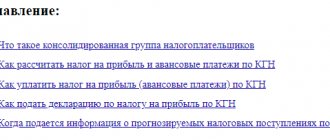The concept of "tax"
The principles of the tax system of the Russian Federation are established in the Tax Code of the Russian Federation, and it also states what the responsibilities of the taxpayer are .
The definition of tax is given in Article 8 of the Tax Code of the Russian Federation. It is understood as a mandatory individual payment, collected in cash free of charge from organizations and individuals to ensure the activities of the state and municipalities. Paying it is one of the responsibilities of subjects of tax law. Let's look at what the basic rights and responsibilities of a taxpayer are (briefly) .
Who is affected by the provisions of clause 2 and clause 2.1 of Art. 23 of the Tax Code of the Russian Federation?
Clause 2 Art. 23 of the Tax Code of the Russian Federation establishes additional obligations for individual entrepreneurs and organizations, namely, to report to the tax authority at their location (for individual entrepreneurs - at their place of residence) information about participation in Russian organizations if the share of direct participation exceeds 10%. A deadline has been set for this - no later than 1 month from the date of the start of such participation (subclause 2, clause 2, article 23 of the Tax Code of the Russian Federation). No reporting is required if the taxpayer has become a member of a business partnership or LLC.
If the taxpayer has created a separate division on the territory of the Russian Federation, this must also be reported to the controllers within 1 month from the date of its creation (subclause 3, clause 2, article 23 of the Tax Code of the Russian Federation). There is no need to notify about the creation of a branch or representative office.
The same subclause provides for the obligation for the taxpayer to report all changes related to separate divisions in relation to the information previously transmitted to the tax authorities. Only 3 days are allotted for this from the date of change in the relevant information.
In case of closure of a separate division, the period for submitting such information is also 3 days (subclause 3.1, clause 2, article 23 of the Tax Code of the Russian Federation).
Clause 2.1 did not ignore individuals. If they pay property taxes on the basis of a tax notice and such notice is not received, they are obliged to inform inspectors about the presence of real estate and (or) vehicles. It is necessary not only to report these objects before December 31 of the year following the expired tax period, but also to attach copies of title documents. An individual is exempt from these actions if he is provided with an appropriate benefit that allows him not to pay tax.
Legal entities have a similar obligation: also, by December 31, they are required to send a message to the tax authorities (to the inspectorate of their choice) about the availability of vehicles and (or) land plots, in case they have not received a message about the amount of transport or land tax calculated by the tax authority.
From 07/08/2021, a new clause 2.3 of Art. 23 of the Tax Code of the Russian Federation, which establishes the obligation to submit to the tax authority reports on transactions with goods subject to traceability, and documents containing traceability details.
Read more about reporting on traceable goods in the ready-made solution from ConsultantPlus. Trial access to the system can be obtained for free.
Functions
There are four functions of tax payments:
- fiscal;
- distribution;
- regulating;
- controlling.
The fiscal function is the main one. Its essence is that revenues from fiscal payments are one of the items of state income.
The distribution function implies the redistribution of income between different segments of the population. Collecting taxes from persons receiving income allows the funds received to be used to support the unprotected and disadvantaged segments of the country's population.
The regulatory function is aimed at creating the most efficient tax system. It is implemented through:
- support for certain sectors of the economy by reducing the tax burden;
- creation of mechanisms to prevent abuses in the area of taxpayer rights and obligations established by law;
- accumulation of funds for the restoration of consumed resources (water tax, mineral extraction tax, duties and excise taxes on raw materials).
The control function is to ensure the completeness and timeliness of tax receipts to the budget. It is aimed at monitoring the fulfillment of taxpayer obligations.
Types of taxes
In the taxation system of the Russian Federation, depending on the level of the budget to which the tax is transferred, various types of fees are distinguished:
- federal (VAT, excise taxes, personal income tax, income tax, state duty);
- regional (transport taxes, gambling taxes, corporate property taxes);
- local (fees for land, property of individuals, trade fees).
Economic science also defines two types of fiscal payments:
- direct - levied on the income, profit, and property of the payer. These include income tax, personal income tax, property fiscal fees;
- indirect - included in the price of the product, they are actually paid by the buyer. These include VAT and excise taxes.
Types of payers of taxes and fees
Taxpayers are individuals and legal entities who are responsible for paying taxes (Article 19 of the Tax Code of the Russian Federation). Depending on the type of fiscal payment, payers may be:
- individuals;
- individual entrepreneurs;
- other persons carrying out activities without registering an individual entrepreneur: self-employed, practicing lawyers and notaries;
- organizations.
In addition, the Tax Code identifies a special type of entity in the payment of fiscal duties - a tax agent. Agents calculate and withhold the fiscal payment from the payer and transfer it to the budget. A striking example is organizations that withhold personal income tax from salaries paid to employees.
Payers' rights in tax law
Within the framework of the current legislation, payers are citizens and organizations that, according to the current Tax Code, are obliged to pay all fees and taxes applied to them in favor of the state budget. In addition, such payers may also include foreign organizations that do not form legal entities.
The rights of taxpayers are defined in Article 21 of the Tax Code. The list of taxpayer rights includes:
- free receipt of information on taxes and fees currently provided for by this legislation;
- tax benefits under certain conditions;
- refund of funds paid in excess of the norm;
- clarifications from the Ministry of Finance on controversial or emerging issues;
- the opportunity to participate and be present during tax inspections;
- express objections and put forward demands for the legal implementation of tax law;
- maintaining tax secrets;
- carry out joint reconciliation with tax authorities or their representatives;
- compensation for damage caused by unlawful actions.
It is noteworthy that taxpayers have the right not to react in any way and not to comply with the demands put forward by the tax authorities, which have no legal basis. At the same time, payers of both fees and taxes have equal rights, equal obligations, and bear equal responsibility.
Taxpayer rights
Where are the rights and responsibilities of taxpayers stated and what do they consist of?
The protection of the rights of payers of fiscal fees is enshrined in Articles 21 and 22 of the Tax Code of the Russian Federation. What are the rights and obligations of a taxpayer established by law :
- receiving clarifications (including in writing) on the application of Russian legislation in the field of taxation from the Federal Tax Service and the Ministry of Finance;
- use of benefits established by law;
- obtaining installments or deferments when paying fiscal fees in difficult situations;
- offset and return of overpaid fees, reconciliation of mutual settlements with the Federal Tax Service;
- presence during an on-site inspection;
- presence during the examination, giving explanations and challenging the results of the inspection;
- compliance with tax secrecy;
- compensation for losses caused by illegal acts of regulatory authorities or actions (inaction) of officials.
Position of the Federal Tax Service and the Ministry of Finance
On the participation of a lawyer in the interrogation of a witness at the tax authority
The Ministry of Finance of Russia and the Federal Tax Service of Russia have repeatedly clarified the issues of the procedure for questioning a witness by the tax authority with the participation of his representative. This article provides a detailed analysis of such clarifications.
On the status of a witness representative
In letters dated October 30, 2012 No. AS-3–2/ [email protected] and dated December 31, 2013 No. ED-4–2/ [email protected] the Federal Tax Service of Russia explained that:
– when interrogating a witness, the guaranteed part 1 of Art. 48 of the Constitution of the Russian Federation, the right of everyone to receive qualified legal assistance;
– The Tax Code of the Russian Federation (hereinafter referred to as the Tax Code of the Russian Federation) does not provide an exhaustive list of persons who may participate or be present during the interrogation;
– tax legislation does not limit the rights and obligations of a person accompanying a citizen summoned for questioning by the tax authority in accordance with Art. 90 Code;
– since the legal status of the taxpayer and the witness, according to the Tax Code of the Russian Federation, differs, the power of attorney issued by the witness to the person participating in his interrogation at the tax authority may not be notarized;
– powers of a representative accompanying a person summoned for questioning by the tax authority in accordance with Art. 90 of the Tax Code of the Russian Federation, cannot be documented in documents that deal with the giving of testimony (explanations) on behalf of the witness by his representative;
– interrogation of a lawyer (attorney) instead of a witness is unacceptable, regardless of whether the former has a power of attorney providing for such powers.
Participation of a lawyer in the questioning of a witness is not a vice
In the letter of the Federal Tax Service of Russia dated July 10, 2022 No. ED-4–15/ [email protected] “On the prevention of violations of tax legislation”[1], one of the characteristics of “nominal” taxpayers (not involved in financial and economic activities) was indicated and such: interrogations of persons are carried out in the presence of representatives (lawyers).
After the FPA appealed to the Prosecutor General's Office of the Russian Federation[2], the Federal Tax Service of the Russian Federation adjusted its position. By letter of the Federal Tax Service of Russia dated September 21, 2018 No. ED-4–15/ [email protected] , this negative sign was removed: the words “interrogations of persons are carried out in the presence of representatives (lawyers)” were excluded.
Such a curiosity could be considered a typo (technical glitch), if practice had not shown: interrogation of a witness with the participation of a lawyer is less likely to become evidence of a tax offense by the taxpayer than interrogation without it. If the tax department has an interest in increasing the effectiveness of tax audits (in the form of additional tax revenues to the budget), then an attempt to discredit a lawyer and his client is understandable.
On the right of a taxpayer’s representative to be present at the interrogation of a witness
Letters from the Ministry of Finance of Russia dated October 22, 2015 No. 03–02–07/1/60796 and the Federal Tax Service of Russia dated August 17, 2022 No. EA-4–15/13203 explain that the participation of the taxpayer or his representative during the interrogation of a witness Art. . 90 of the Code is not provided.
The Federal Tax Service considers it no coincidence that the presence of the person being inspected during other tax control activities in relation to him is determined by the relevant articles of the Code. So, for example, Art. 92, 93, 94, 95 of the Code provide for the right of the person being inspected to participate in the inspection of his territory (premises), requesting from him documents necessary for the inspection, seizure of documents and objects, and conducting an examination. Since in Art. 90 of the Code does not directly provide for the participation of the person being inspected during the interrogation of witnesses; the Ministry of Finance and the Federal Tax Service of Russia interpret this as a ban on such participation.
It appears that the legal gap in Art. 90 of the Tax Code of the Russian Federation does not prevent the participation of a taxpayer’s representative in the interrogation of a witness if such interrogation is carried out as part of an on-site tax audit of this taxpayer.
The rule protecting the rights of the taxpayer that is missing in the special norm should be sought in the general norm. By virtue of sub. 8 clause 1 art. 21 of the Tax Code of the Russian Federation, the taxpayer has the right to be present during an on-site tax audit. If the interrogation of a witness is carried out as part of an on-site tax audit of the taxpayer, then the taxpayer has the right to be present at it in the person of his representatives.
The fact that an on-site tax audit and interrogation of a witness may not be carried out on the territory (premises) of the taxpayer (clause 1 of Article 89 of the Tax Code of the Russian Federation, clause 4 of Article 90 of the Tax Code of the Russian Federation) cannot limit the right of the taxpayer’s representative to be present during this tax control measures.
Some general rights of a taxpayer are additionally conditioned by the existence of grounds and procedures established by the legislation on taxes and fees (subclause 3, clause 1, article 21 of the Tax Code of the Russian Federation). The right of a taxpayer to participate in an on-site tax audit does not provide for such a restriction (subclause 8, clause 1, article 21 of the Tax Code of the Russian Federation).
An example of a legal restriction of a taxpayer’s rights in a special norm is subparagraph. 4 paragraph 7 art. 95 of the Tax Code of the Russian Federation, which directly states that the right of the person being inspected to be present during the examination may be limited by an official of the tax authority (subclause 4, clause 7). This example shows that a special rule can limit the effect of a general rule, but a gap in a special rule cannot.
If we continue the positivist logic of the Federal Tax Service and the Ministry of Finance of Russia, then the lack of special rules blocks the application of other general taxpayer rights provided for in Art. 21 of the Tax Code of the Russian Federation: receive free information from tax authorities about current taxes (subclause 1, clause 1); to carry out joint reconciliation of tax calculations (subclause 5, clause 1); demand that officials of tax authorities comply with tax legislation (subclause 10, paragraph 1), etc. But such an interpretation leads to absurdity: the lack of detail in the implementation of the right leads to the deprivation of the right as such.
Analysis of the arguments against
Let's look at the most popular arguments used by tax officials to deny an audited taxpayer's request to invite his representative (lawyer) to question witnesses questioned as part of his on-site tax audit:
– the taxpayer’s representative (lawyer) is an interested person and he can prevent the witness from giving reliable testimony;
– the witness does not want to testify in the presence of the taxpayer being audited;
– the taxpayer under audit does not have the right to know about the evidence of his offense before the announcement of the plot of the tax charge (tax audit report).
The first argument contradicts the position of the Federal Tax Service of Russia: if a lawyer is not an eyewitness to tax-significant events, he has no right to speak for the witness. The inspector conducting the interrogation has the right to suppress possible interference from the lawyer. Since the interrogation of a witness, as a rule, is carried out on the premises of the tax authority, the inspector conducting the interrogation is authorized to ensure order during its conduct.
The second argument contradicts the principle of reliability of evidence. If a witness tells the truth for public purposes, he should not be embarrassed by the presence of an interested party who might be harmed by the truth. If a witness really does not want to testify in the presence of the taxpayer being audited, then it is necessary to find out the reasons. Does the witness wish to incriminate the taxpayer or certain of his employees? The witness has already been instructed by an unscrupulous tax inspector (sometimes there are such people), and the witness is now embarrassed by the taxpayer’s representative? Other reasons? It seems that, on the contrary, the presence of a taxpayer’s representative will increase the witness’s responsibility for his words and prevent the taxpayer from slandering himself.
The third argument contradicts the principle of openness of tax control measures. The interrogation of a witness is one of these events that cannot be secret or unspoken for the taxpayer. Tax audits, as well as the tax authorities that conduct them, are not subject to the Law on Operational Investigations[3], which allows for the secret collection of information and evidence.
The witness must provide truthful and as accurate information as possible, and the tax authority must record it without distortion. The reliability of a witness's testimony can and should be verified by the court if the taxpayer challenges the results of a tax audit[4]. Consequently, both the tax authority and the witness questioned by it must be prepared for such an audit in the presence of the taxpayer being audited. But the interrogation of a witness by the court may occur after a long time, when the witness may forget some of the circumstances, which may negatively affect the reliability of his testimony.
In this regard, conducting an interrogation in the presence of the taxpayer being inspected should be beneficial to the inspectors: this insures them against the suspicion of the taxpayer and the court of obtaining unreliable testimony (flawed evidence of a tax offense).
Tax control presupposes cooperation and interaction between the auditee and the inspector: the Tax Code of the Russian Federation assumes that the taxpayer will not interfere with his audit. On the other hand, auditors have a legitimate interest in obtaining good-quality evidence of tax-significant events. Without the help of the taxpayer being inspected, the inspector risks sending a subpoena to an irrelevant address or calling in for questioning someone who is not related to the events being established.
In this regard, the participation of the taxpayer being audited in the interrogation of the witness will most likely improve the quality of the evidence and resolve the tax conflict at the pre-trial stage.
Interpretation by the Ministry of Finance and the Federal Tax Service of the Russian Federation of Art. 90 of the Tax Code of the Russian Federation contradicts the rule of paragraph 7 of Art. 3 Tax Code of the Russian Federation
As follows from the text of Art. 90 of the Tax Code of the Russian Federation, it does not regulate the taxpayer’s rights to participate in the interrogation of a witness as part of his on-site tax audit, and sub. 8 clause 1 art. 21 of the Tax Code of the Russian Federation, on the contrary, presupposes such participation.
Letters from the Ministry of Finance of Russia dated October 22, 2015 No. 03–02–07/1/60796 and the Federal Tax Service of Russia dated August 17, 2022 No. EA-4–15/13203 were prepared as responses to requests from taxpayers regarding the interpretation of tax rules. Consequently, law enforcement officials have repeatedly had doubts related to the ambiguity of the legislation on this issue.
If such doubt about the ambiguity of an act of legislation is considered irremovable [5], then by virtue of clause 7 of Art. 3 of the Tax Code of the Russian Federation, it must be interpreted in favor of the taxpayer (tax payer, insurance premium payer, tax agent).
Taking into account the legal principle of resolving such legal conflicts, the legal gap in Art. 90 of the Tax Code of the Russian Federation should be interpreted in the most beneficial way for the taxpayer being audited: if he has expressed a desire to be present in the person of his representative (lawyer) at the interrogations of witnesses conducted by officials of the tax authority as part of his tax audit, he has the right to exercise this right provided for in subparagraph. 8 clause 1 art. 21 Tax Code of the Russian Federation.
Since the taxpayer’s conscientious behavior is presumed, and the alleged abuses of the lawyer-representative of the taxpayer can be identified and suppressed by the tax authority official conducting the interrogation of the witness (see above), the guidance of this rule seems justified.
[1] The document has become invalid.
[2] In his address, the President of the FPA of the Russian Federation, Yuriy Pilipenko, referred to the fact that the controversial provision of the letter of the Federal Tax Service is actually “aimed at infringing on the constitutional right of citizens to qualified legal assistance, as it can lead to a massive violation of the rights of taxpayers and interrogated persons, as well as preventing participation lawyers during interrogation."
[3] Federal Law of August 12, 1995 No. 144-FZ “On operational investigative activities.”
[4] Based on Art. 6 of the European Convention for the Protection of Human Rights and Fundamental Freedoms, which establishes the right of the accused to a fair trial, the ECtHR, in its ruling of 22 July 2008 in the case of Hannu Lehtinen v. Finland (No. 32993/02), decided that the direct participation of witnesses during the trial courts of tax disputes, including the issue of applying tax sanctions, is mandatory if the taxpayer challenging such sanctions insists on this. Precedential decisions of the European Court of Human Rights are binding on Russian courts, since the Convention for the Protection of Human Rights and Fundamental Freedoms of November 4, 1950 and its Protocols are an integral part of the Russian legal system.
[5] According to Art. 1, 4 and sub. 2 p. 1 art. 6 of the Tax Code of the Russian Federation, executive authorities do not have the right to cancel or limit the rights of taxpayers established by the Tax Code of the Russian Federation.
Published based on materials from “AG”
Responsibilities of a Russian taxpayer with examples
Economic science identifies three responsibilities of a taxpayer (with examples ):
- Register with the tax authorities. Conducting business activities without registration is illegal and entails prosecution. In the Russian Federation, a fine of 40,000 rubles is established. (clause 2 of article 116 of the Tax Code of the Russian Federation).
- Make payments to the budget on time and in full. For non-payment or late payment of taxes, penalties and fines are collected.
- Provide reports to regulatory authorities. For each fiscal payment, reporting is provided, which allows government agencies to monitor the correctness of calculation and completeness of payment of fiscal fees.
The entire responsibilities of taxpayers - individuals and organizations in the Russian Federation are listed in Article 23 of the Tax Code. For example, the taxpayer's responsibilities include :
- keeping records of income (expenses) and taxable items;
- provision of documents and explanations necessary for tax controlling to regulatory authorities;
- compliance with legal requirements of regulatory authorities;
- ensuring the safety of registration data and primary documentation for four years;
- other obligations established by tax legislation.
All relationships between payers and the Federal Tax Service are strictly regulated by the Tax Code of the Russian Federation and other legal acts. All reporting is provided exclusively in forms approved by authorized regulatory authorities. As an example: all payers of the single tax on imputed income provide a declaration in the form approved by Order of the Federal Tax Service dated June 26, 2018 No. MMV-7-3/
Access to taxpayer territory
The very first tax control event is carried out with the beginning of the GNP and is regulated by Art.
91 Tax Code of the Russian Federation. This is access for officials of the Federal Tax Service to the territory or premises of the taxpayer to conduct an inspection. Once you have received a decision to conduct a VNP, you need to provide the inspectors with workplaces and access to your territory. The exception is the lack of premises. If the taxpayer prevents inspectors from accessing the territory, a report is drawn up regarding this fact, and there are only two options for resolving this conflict:
- The audit will be carried out in the tax office building, and all requested documents for the audited period must be brought there.
- The inspection will include law enforcement officers who have the right to forcibly enter the territory, as they have the right to do so. The inspection will be joint, and all necessary documents and items will be confiscated.
We will teach you how to protect yourself during tax audits in the online course “Clerk”. The author is a former employee of the Department for Economic Crimes, now a well-known tax lawyer. Tells it like it is. Training is completely remote, we issue a certificate.
Such situations arise very rarely, but they do happen.
In most cases, inspectors freely enter the taxpayer’s territory and, although they are not welcome, they create all the conditions for an inspection. Only the inspectors specified in the decision to conduct an internal inspection can appear at your place. And here the taxpayer has the right not to allow inspectors who are not in the decision to enter their territory. If you have access control, then the inspectors are also issued passes. A document for the right to enter does not need to be issued for the duration of the entire inspection, since controllers may change.
When coming for an inspection, the tax inspector is required to present his official ID. Also, inspectors must adhere to the taxpayer’s work schedule; they do not have the right to interfere with the work of the enterprise. For example, if the taxpayer works until 17:00, and the tax office’s work schedule is from 9:00 to 18:00, then the inspectors are required to leave the territory of the person being inspected no later than five o’clock in the evening.
There are also taxpayers who think that while the audit is ongoing, inspectors should be in the office every day, and when they do not come, they report this to the management of the tax inspectorate. This is a big misconception. Inspectors are not required to report their actions to the management of the person being inspected. In addition to the inspection, inspectors have other job responsibilities related to their work. In addition, some GNP activities are carried out directly in the inspection building.
The VNP is completed by drawing up a certificate of completion. After signing this document, inspectors do not have the right to be on the territory of the taxpayer being inspected. Therefore, in order to avoid conflict situations, the certificate is signed before the end of the working day. All requests, surveys, requests for documents initiated after the preparation of the certificate of completion of the GNP are considered invalid. Exceptions include information obtained as part of additional activities, for which a separate decision on their implementation is made.




